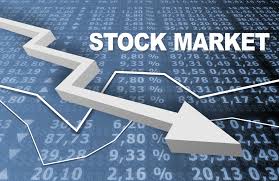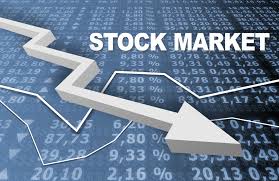
All be it with a very new perspective, markets get back to the business of watching the Federal Reserve after a historic week.
Wall Street expectations, not only regarding who would lead the country, but the market's reaction to that leader were defied by Donald Trump’s surprise victory in a tight presidential election. And on the president-elect's promise of launching a huge spending program to stimulate the economy and the promise of changing the tax code, the market vaulted higher instead of latching onto the uncertainties.
Issues of particular interest will be any guidance on whom Trump plans to name for key Cabinet jobs even as his transition will be a big focus for markets in the week ahead. Given the emphasis during the campaign on things like trade and deregulation, some of those names could be market moving. With the highlights both Tuesday's retail sales report and CPI inflation data Thursday, there is also a busy economic calendar.
Important insights into how consumers weathered the election season could be provided by the retail sales data and also the comments from merchants, who report earnings during the week. Home Depot on Tuesday, Target on Wednesday and Wal-Mart on Thursday are among the retailers reporting earnings next week.
With the Dow rallying 5 percent to a new high, its best gain in five years, stocks in the past week surged. While the Nasdaq was up 3.7 percent, the Dow ended Friday at 18.847, and the S&P 500 was up 3.8 percent at 2,164.
At the same time, particularly at the long end, U.S. Treasury yields zipped higher. From a pre-election level of 1.8 percent, the 10-year Treasury yield jumped to 2.15 percent, the highest level since January.
Market sentiment shifted, and so did the stocks that were in favor literally overnight Tuesday into Wednesday. On the outlook for higher rates and less regulation, financials ripped higher, up 11.3 percent for the week. That was the best week for the sector since the bull market began in 2009.
The Industrial Select SPDR Fund ETF had its best week in five years as industrials bounced nearly 8 percent. On relief that Hillary Clinton did not win and on Trump's vow to eliminate parts of Obamacare, health care jumped 6 percent.
And as investors shifted into new market leadership, there was selling in some tech names like Facebook, Amazon and Netflix.
"What you've also done here is you've priced in growth based on a resumption of animal spirits that may or may not occur. The point is what we do know this is a [president] who is likely to regulate less, not more. This is also an environment where interest rates have risen sharply enough that we could probably say with pretty high conviction that the lows in interest rates that you saw in July were very significant lows, the psychology around interest rates is turning," said Julian Emanuel, equity and derivatives strategy at UBS. Emanuel is keeping his year-end target for the S&P 500 just slightly higher than Friday's close at 2,175.
(Source:www.cnbc.com)
Wall Street expectations, not only regarding who would lead the country, but the market's reaction to that leader were defied by Donald Trump’s surprise victory in a tight presidential election. And on the president-elect's promise of launching a huge spending program to stimulate the economy and the promise of changing the tax code, the market vaulted higher instead of latching onto the uncertainties.
Issues of particular interest will be any guidance on whom Trump plans to name for key Cabinet jobs even as his transition will be a big focus for markets in the week ahead. Given the emphasis during the campaign on things like trade and deregulation, some of those names could be market moving. With the highlights both Tuesday's retail sales report and CPI inflation data Thursday, there is also a busy economic calendar.
Important insights into how consumers weathered the election season could be provided by the retail sales data and also the comments from merchants, who report earnings during the week. Home Depot on Tuesday, Target on Wednesday and Wal-Mart on Thursday are among the retailers reporting earnings next week.
With the Dow rallying 5 percent to a new high, its best gain in five years, stocks in the past week surged. While the Nasdaq was up 3.7 percent, the Dow ended Friday at 18.847, and the S&P 500 was up 3.8 percent at 2,164.
At the same time, particularly at the long end, U.S. Treasury yields zipped higher. From a pre-election level of 1.8 percent, the 10-year Treasury yield jumped to 2.15 percent, the highest level since January.
Market sentiment shifted, and so did the stocks that were in favor literally overnight Tuesday into Wednesday. On the outlook for higher rates and less regulation, financials ripped higher, up 11.3 percent for the week. That was the best week for the sector since the bull market began in 2009.
The Industrial Select SPDR Fund ETF had its best week in five years as industrials bounced nearly 8 percent. On relief that Hillary Clinton did not win and on Trump's vow to eliminate parts of Obamacare, health care jumped 6 percent.
And as investors shifted into new market leadership, there was selling in some tech names like Facebook, Amazon and Netflix.
"What you've also done here is you've priced in growth based on a resumption of animal spirits that may or may not occur. The point is what we do know this is a [president] who is likely to regulate less, not more. This is also an environment where interest rates have risen sharply enough that we could probably say with pretty high conviction that the lows in interest rates that you saw in July were very significant lows, the psychology around interest rates is turning," said Julian Emanuel, equity and derivatives strategy at UBS. Emanuel is keeping his year-end target for the S&P 500 just slightly higher than Friday's close at 2,175.
(Source:www.cnbc.com)





